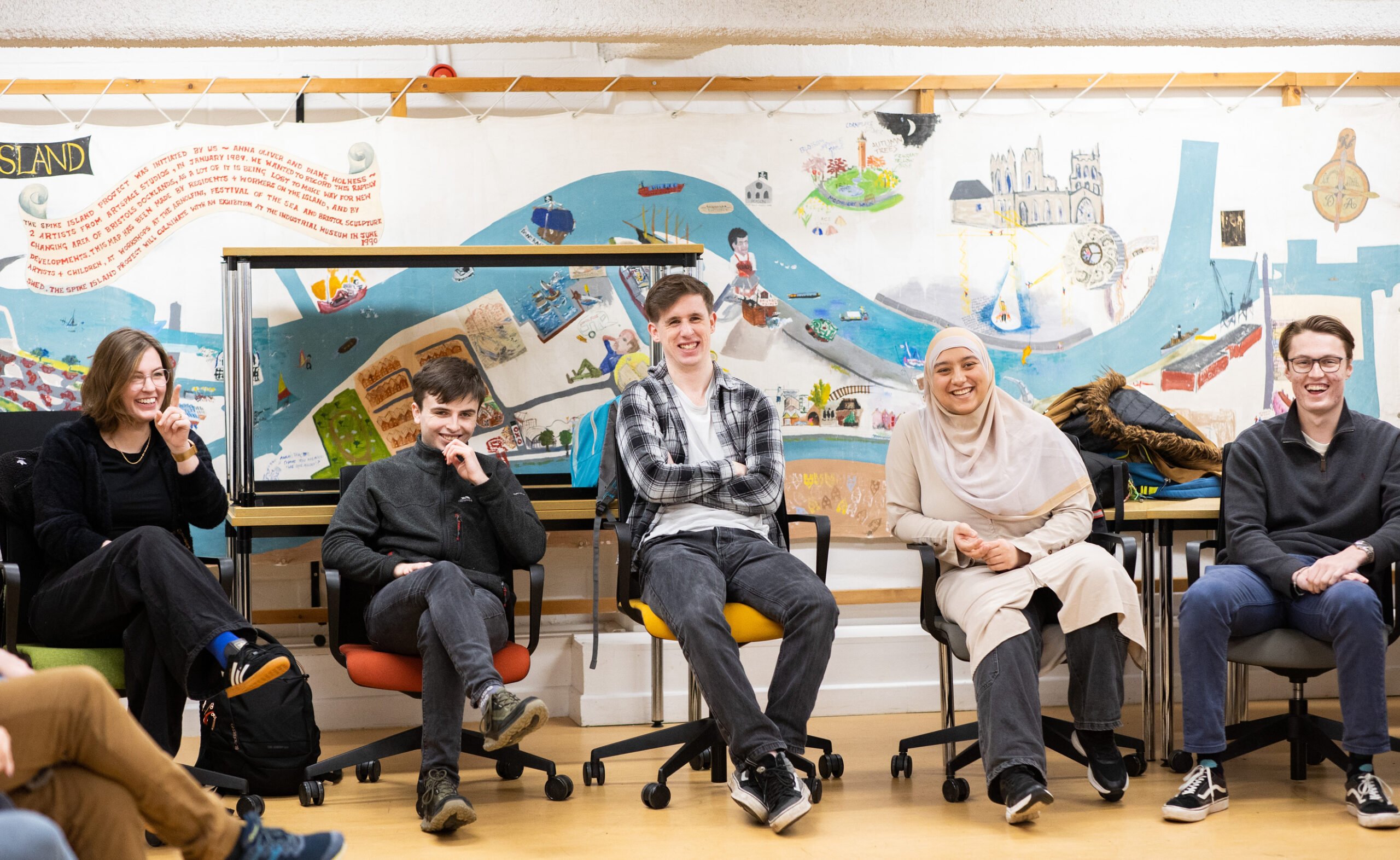
'If the challenges outlined in this report are addressed, there’s no limit to what we can achieve'
Photo: British Council/InPress Photography
Next generation
In its long running programme of research, the British Council has been assessing trends and challenges in arts and cultural provision for young people across the world. Director of research Christine Wilson shares key findings from the latest round.
“During the election…all are seen here. Afterwards, nobody is seen here.”
“I see people being like ‘We want to involve young people in decisions’, but I don’t think those opinions are actually taken on board when decisions are being made.”
There were 15 years and five and a half thousand miles between those two quotes and yet, in their shared view of the world, they provide a clear reminder why the British Council runs Next Generation research.
The first is from Pakistan: The Next Generation (2009), which was the starting point in what became our flagship youth research programme. The latter is from Next Generation UK 2024, commissioned to mark our 90th anniversary.
Listening is not enough
When we began to develop this research as a global programme, the focus was on three core areas. The first was listening to young people: over the 15 years we have undertaken this work, in more than 20 countries, we’ve found that young people do not feel heard.
But listening is not enough, so we also focus on amplifying their voices. This is a cohort that lives without the borders that delineated the lives of previous generations. Instead, they are engaged with the wider world and its challenges – climate change, inequality and conflict among them. They have strong views on education, employment, housing and more which deserve to be heard.
The last point is about translating young voices into insights to be used as evidence by policymakers. Their views should influence the policies that affect their lives now and in the future.
Impact of a volatile world
With the latest UK research, we wanted to understand how the young people’s lives had been impacted by a tumultuous few years: the aftermath of Covid, the departure from the EU and an increasingly volatile world. We investigated several areas, including education, employment and political engagement, but in this article, I want to home in on a few themes, firstly culture, community and identity.
There was a lot to uncover. For one, there is a complex relationship between young people and community. While traditional place-based communities are disappearing, different forms of connection are emerging in their place. For example, digital platforms enable young people to build communities around shared interests and experiences.
This shift appears particularly significant among marginalised groups, who are highly attuned to the importance of communities based around shared identities, and for whom newer forms of community present the opportunity of a sense of belonging.
However, our research suggests an interesting disconnect; while young people are actively participating in various forms of community, they don’t always recognise these connections as community, until prompted to think beyond traditional place-based definitions. This raises important questions about how we define and understand community in contemporary society.
Continues…

Soft skills such as creativity and communication, are vital for a rapidly-evolving workplace. Photo: British Council/InPress Photography
Much in common
Interestingly, I see echoes of this in our forthcoming Next Generation research in Brazil, where young people’s sense of community also seems to be shifting. And it reinforces what I have seen throughout the research, which is just how much young people around the world have in common.
Another important theme is the sense of culture and creativity as a UK superpower, which we has also been evident in other research, such as the Global Perceptions Survey. Many participants emphasised aspirations for the UK to be seen as a leader in thriving and influential cultural exports, as well as being recognised as a multicultural and accepting society.
As one focus group participant said: “I think we should be really proud and celebrate the arts in this country, especially music events, festivals and arts… we’ve got so much talent in this country. [We should take pride in] being so multicultural…”
Creativity is also viewed as an important skill for the world of work and is something we see young people around the world calling out for in their education. So-called ‘soft skills’ such as creativity and communication, are vital for a rapidly-evolving workplace, and education systems need to adapt to this reality.
Optimism, confidence, commitment
In a further piece of research – UK Arts, Culture and Young People: Innovative practice and trends, which reviewed arts and cultural provision for young people (aged 11-24) across the UK – one participant observed: “Schools are not equipped to teach creativity”.
We aim to assess trends and challenges in arts and cultural provision for young people, highlighting effective practices and key issues. The report includes in-depth case studies and a wealth of recommendations for stakeholders and funders – including fostering greater connections, building national and international networks and sharing practice.
But let’s end on a positive note. “There is a huge amount of amazing work being produced by young people across the UK…The activist and changemaker spirits of young people… show they have a passion to engage with complex global issues.” This echoes the findings from our research about their global peers: optimism, confidence and a commitment to make the world a better place.
I’ll leave the last word to the young people who advised the UK research: “If the challenges outlined in this report are addressed, there’s no limit to what we can achieve.”

Join the Discussion
You must be logged in to post a comment.